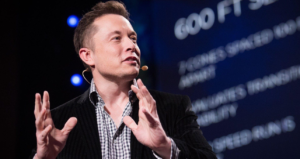Recently, the Kremlin has urged Google to lift its restrictions on Russian broadcasters operating on YouTube. This call comes in light of substantial legal claims against the tech giant, which the Kremlin hopes will prompt a reconsideration of its policies. Since the onset of the conflict in Ukraine, Google has taken significant steps to limit the presence of Russian state-sponsored content on its platforms.
The ongoing war in Ukraine has led to drastic actions by various tech companies, including Google. In March 2022, Google halted ad services in Russia and paused monetization for content deemed to promote or condone the conflict. This decision has resulted in blocking over 1,000 YouTube channels and more than 5.5 million videos, primarily from Russian state media.
Legal Claims Against Google
Recent reports from Reuters indicate that 17 Russian television channels have filed legal claims against Google in Russian courts. These claims have reportedly accumulated to an astronomical figure of 2 undecillion roubles, a number so vast that it has 36 zeroes. Kremlin spokesman Dmitry Peskov described this figure as symbolic yet indicative of the severe grievances held by Russian broadcasters.
Peskov stated, “These demands demonstrate the essence of our channels’ claims against Google. Google should not restrict the activities of our broadcasters.” This sentiment highlights the ongoing tension between Russian authorities and U.S.-based tech companies over content moderation and censorship, making it a critical topic in world news and U.S. news.
The Broader Implications
The situation raises important questions about the role of multinational tech companies in global conflicts and their responsibilities regarding content moderation. As more countries express dissatisfaction with how platforms manage local content, the pressure on companies like Google will likely increase.
The Kremlin’s call for Google to address the legal claims could signal a potential shift in how tech giants operate within contentious political landscapes. This development is a critical point in ongoing technology updates.
Google’s Position
Google has not formally responded to the Kremlin’s statements or the mounting legal claims. The company’s policies regarding content moderation are shaped by a complex interplay of legal, ethical, and operational considerations, especially regarding issues of war and state-sponsored narratives. Technology news outlets will closely monitor updates on Google’s position.
Conclusion
As the legal battles unfold, the situation remains fluid. The Kremlin’s hope that the enormous legal claims will lead Google to reverse its block on Russian broadcasters illustrates the ongoing struggle between government interests and the autonomy of global tech companies. This issue affects Russian broadcasters and serves as a significant moment in the landscape of technology and media, resonating through the lens of international relations.






1 Comment
Pingback: Kremlin Calls on Google to Reverse YouTube Block on Russian Broadcasters – Oranic Soft